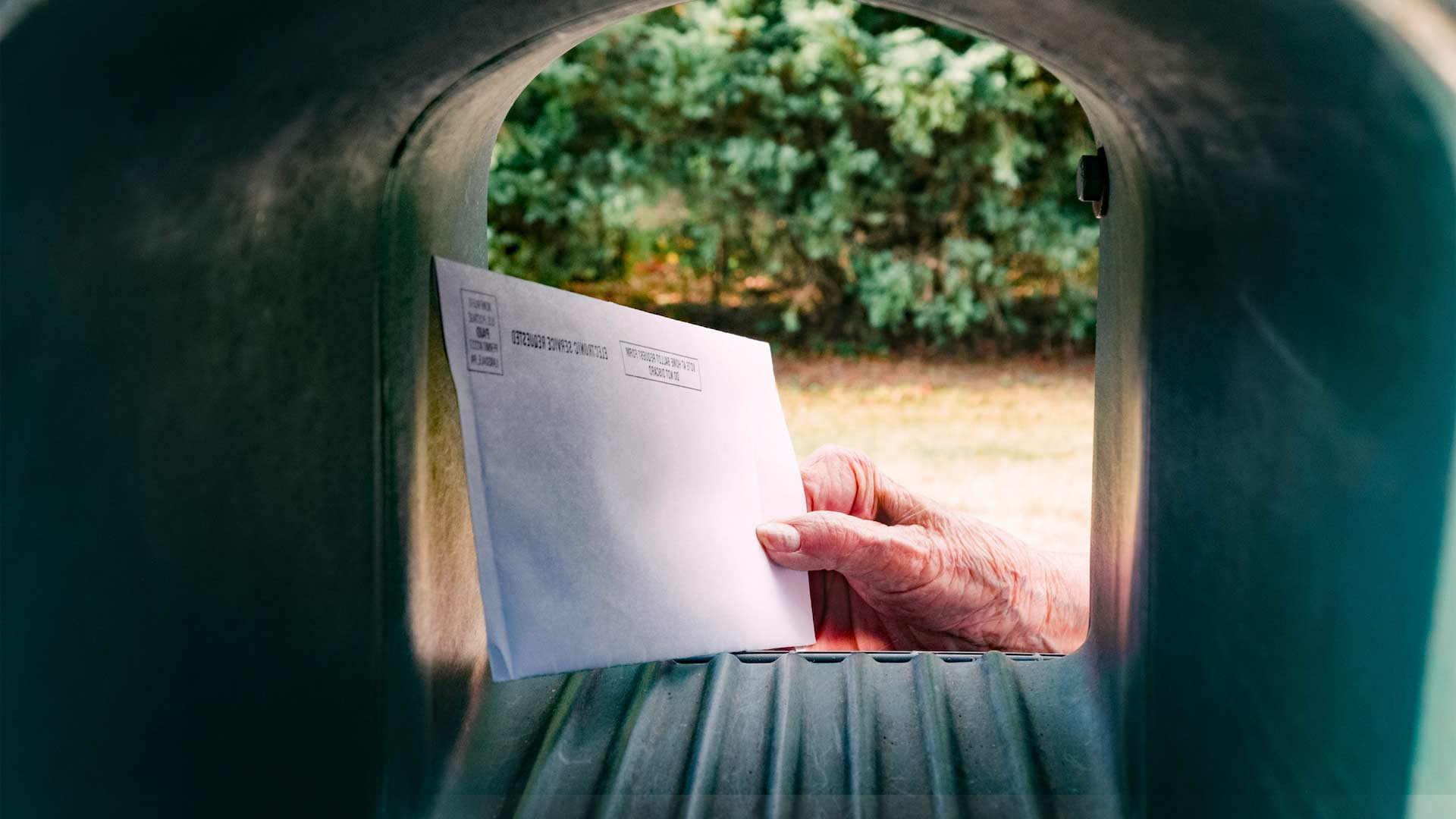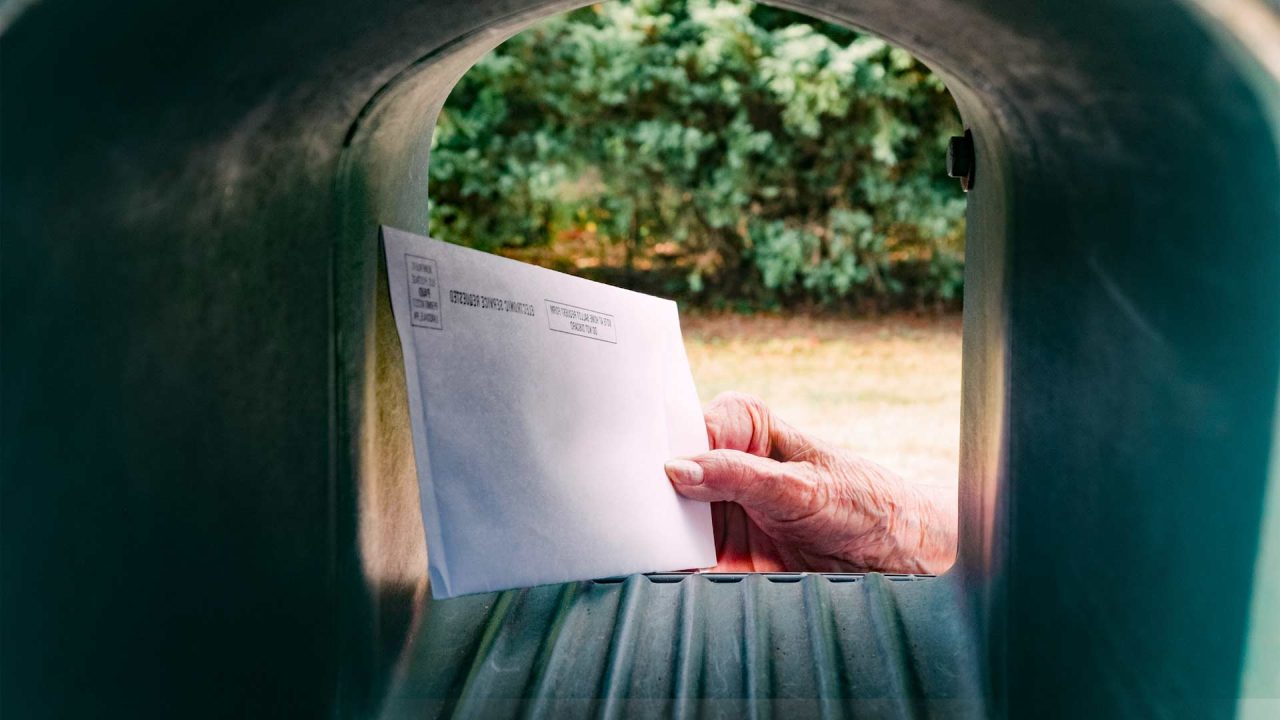
Alaska Senate Democrats sent an sharply worded letter to the Division of Elections and Lt. Gov. Kevin Meyer demanding to know why the state has rejected roughly 9% of all mail-in ballots in Alaska’s first-ever statewide mail-in election to replace the late Rep. Don Young.
“We write seeking an immediate explanation of the reasons for the rejections and how the division plans to ensure such failures in the voting process never happen again,” the letter signed by six state senators begins. “Considering that this primary was the first-ever conducted where all Alaska voters received — and were expected to use — mail-in ballots, the statistics on rejections are staggering and unacceptable.”
Sent on June 14, the letter was signed by Senators Bill Wielechowski, Tom Begich, Elvi Gray-Jackson, Scott Kawasaki, Jesse Kiehl and Donald Olson. It notes that the rejection rates in Anchorage’s Mountain View neighborhood was 15.2%, while the rejection of ballots from the Bering Straits/Yukon Delta and Bethel/Lower Kuskokwim areas was 17.4%.
“The 12-17% rejection rates reported for the multiple areas in rural Alaska appear to demonstrate a breakdown of our election system and the democratic process for those citizens whose votes were not counted,” the letter states. “The division must strive to implement mail-in ballot procedures that provide Alaskans the reasonable means and a fair opportunity to vote.”
ALASKA WATCHMAN DIRECT TO YOUR INBOX
If the high rejections rates are accurate, the Democratic senators claim that minorities and residents from less affluent areas have been “denied the right to vote.”
“Vote by mail works, but only if implemented so that all citizens have a chance for their vote to be counted,” said Senate Minority Leader Tom Begich.
Sen. Scott Kawasaki echoed this sentiment, saying Alaskans “need to know why so many ballots were discarded in our first, statewide by-mail election in this June election.”
The letter ends by observing that in the 2020 primary only had a 2% rejection rate. That was not, however, a mail-in election. In reality, mail-in elections have a long history of problems, including high rejection rates, late postmarks and incomplete ballots. Despite these concerns, Democrats across the nation have advocated for increased mail-in elections.

Election expert Hans A. von Spakovsky is the manager of Election Law Reform Initiative and a senior legal fellow at The Heritage Foundation. Last October he came to Alaska where he warned officials from the Dunleavy Administration about election integrity concerns, including problems associated with mail-in ballots. Spakovsky also served on the Presidential Advisory Commission on Election Integrity from 2017 to 2018 reviewing claims of voter fraud, improper registration and voter suppression across the country.
In a 2020 column, Spakovsky explained that mail-in ballots are “the most vulnerable to being altered, stolen, or forged.”
He also cites numerous cases across the nation in which voters never received their mail-in ballots but were still recorded as having voted.
“Mail-in ballots also have a higher rejection rate than votes cast in person,” Spakovsky wrote, adding that this is due to mismatched signatures and ballots not complying with technical rules.
“These kinds of technical problems — when a voter doesn’t provide all of the information required with an absentee ballot — occur because there is no election official in people’s homes to answer their questions,” he adds. “At polling places, by contrast, election officials can try to remedy any problems a voter encounters.”
Spakovsky highlights the fact that mail-in ballots have a history of being miscarried, undelivered or wrongly postmarked by the U.S. Postal Service. All of this, he says makes it “impossible for election officials to determine whether the ballots were mailed in time to be counted.”
He concludes his article by pointing out that the U.S. Election Assistance Commission reported that in the last four federal elections, 2.7 million mail-in ballots were misdelivered and 1.3 million were rejected by election officials.
Despite these concerns, Lt. Gov. Meyer chose to conduct the first-ever mail-in election for the special primary to replace Rep. Young. Lt. Gov. During a March 23 press conference he claimed it was impossible to conduct the election in-person due to a paper “supply chain” shortage and difficulty training the needed 2,000 election workers.
Click here to support Alaska Watchman reporting.







12 Comments
Hilarious since it is the left, mostly Democrats, perpetuated much of the mess with their push for mail in voting and ranked choice voting. And now they are crying because it’s hasn’t been smooth sailing for their corrupt voting systems.
Agree
We need to stop this mail in voting and rank choice bull.
One vote in person with ID YES with ID
The “Democrat/Marxists” are cheaters and do not want to be challenged in any way. They want everything crooked they do to be accepted. Pray for “honest elections” Also, pray for a Lt. Governor and Governor who care about us, the Patriotic, honest Alaskan voters.
So long as we have mass mailing of ballots, electronic voting machines and rank choice voting, there will never be another honest election in this state.
Elizabeth, Ruth.. I agree.. I would inform the plaintiffs, also, that we are not a democracy.. Under the U.S. constitution, Article IV Section 4, each state is guaranteed a Republican Form Of Government.
Here’s proof of another half thought throw democratic idea that when it was put to use didn’t work. Now crying about it. If just once democrats thought throw the whole process from start to finish they would see the problems and work them out before implementing a bogus system that doesn’t work. It’s so sad they just don’t get it. They might have a good idea but no way to figure it all out so it fails, time after time!
How would you take it if you spent so much time and effort to fill as many ballots as time would allow only to have some of them to not make all the way through to you people at the end of the voting scheme.
Keven Meyer, the Gov, Rinos, and Demonocrates brought us DEMENION MACHINES and like DIPERS they need to be changed for the same reason.
I received 3 ballots, one for me and two for people who formerly lived in my apartment. As we are supposed to d9, I did return the 2 to the election bureau. Wonder how many others had this happen and the same. Would bet that many used any extra ballots to vote multiple times: it is so easy to do so.
This is funny. The dems barking — because a percentage of their harvested cheater ballots may have been rejected? The Dems’ double standard is really laughable.
I agree with the Democrats about making sure every vote counts. Let’s go back to same day voting, voter ID, paper ballots, and transparency
My husband and I live in the interior bush – along a river, 100 air miles from the nearest village. We’ve voted absentee by mail for the past 27 years. When advance ballots came around, that made it a lot easier because we get our mail so sporadically. It’s always worked well for us, because we’re registered voters, we send a request for our ballots as soon as that time opens up, we fill out our ballot envelopes completely and accurately, and sign them. The bush pilot witnesses our signatures, and gets them in for us on time. I’ve always been grateful that our Elections Div. has made it possible for us to be able to vote, and I’d hate to see that go away. Mail-in ballots work fine, provided it’s done this way. We’ve never had a problem. First off, Alaska needs to clean up the registered voter rolls and purge all those deceased and moved away. Then no more mass-mailing. Mail only requested ballots, and verify signatures. And give enough time. This special election we were unable to vote. Even now our ballots are still sitting in our mailbox because the pilot hasn’t been out. Also this voting for 4 candidates and Dominion voting machines are for the birds. I’m so disheartened that Alaska is as bad or worse than the liberal strongholds of the lower 48.